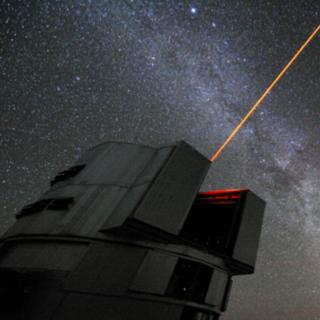Bibcode
Zivick, P.; Kallivayalil, Nitya; van der Marel, Roeland P.; Besla, Gurtina; Linden, Sean T.; Kozłowski, Szymon; Fritz, T. K.; Kochanek, C. S.; Anderson, J.; Sohn, Sangmo Tony; Geha, Marla C.; Alcock, Charles R.
Referencia bibliográfica
The Astrophysical Journal, Volume 864, Issue 1, article id. 55, 13 pp. (2018).
Fecha de publicación:
9
2018
Revista
Número de citas
119
Número de citas referidas
105
Descripción
We present a new measurement of the systemic proper motion of the Small
Magellanic Cloud (SMC), based on an expanded set of 30 fields containing
background quasars and spanning a ∼3 year baseline, using the Hubble
Space Telescope (HST) Wide Field Camera 3. Combining this data with our
previous five HST fields, and an additional eight measurements from the
Gaia-Tycho Astrometric Solution Catalog, brings us to a total of 43 SMC
fields. We measure a systemic motion of μ W =
‑0.82 ± 0.02 (random) ± 0.10 (systematic) mas
yr‑1 and μ N = ‑1.21 ±
0.01 (random) ± 0.03 (systematic) mas yr‑1.
After subtraction of the systemic motion, we find little evidence for
rotation, but find an ordered mean motion radially away from the SMC in
the outer regions of the galaxy, indicating that the SMC is in the
process of tidal disruption. We model the past interactions of the
Clouds with each other based on the measured present-day relative
velocity between them of 103 ± 26 km s‑1. We
find that in 97% of our considered cases, the Clouds experienced a
direct collision 147 ± 33 Myr ago, with a mean impact parameter
of 7.5 ± 2.5 kpc.
Proyectos relacionados

Evolución Galáctica en el Grupo Local
La formación y evolución de galaxias es un problema fundamental en Astrofísica. Su estudio requiere “viajar atrás en el tiempo”, para lo cual hay dos enfoques complementarios. El mas extendido consiste en analizar las propiedades de las galaxias a diferentes distancias cosmológicas. Nuestro equipo se concentra en el otro enfoque, denominado
Emma
Fernández Alvar